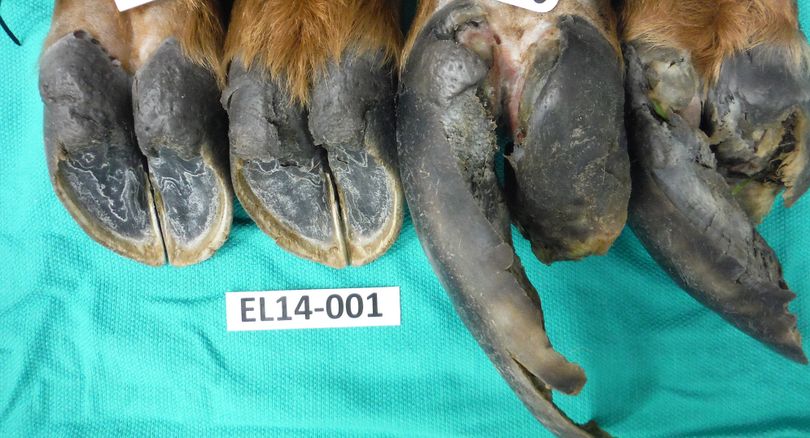Elk hoof disease scope of concern expands in Western Washington

WILDLIFE – Steps to reduce the spread of elk hoof disease were approved among other actions by the Washington Fish and Wildlife Commission during its regularly scheduled meeting Friday and Saturday in Olympia.
The meeting, which dealt largely with West Side issues, also was the last for commissioner Miranda Wecker, who has served on the citizen panel to make fish and wildlife policy since March of 2005. Wecker, a retired attorney who lives in Naselle, announced in late July that she was stepping down as commissioner.
Here's a report on the meeting and it's agenda from the Department of Fish and Wildlife.
Commissioners adopted a measure requiring hunters to remove and leave behind the hooves of any elk harvested in six game management units in an effort to reduce the spread of elk hoof disease, a debilitating bacterial disease.
DFW already requires these precautions in many management units in southwest Washington. Beginning this fall, those hunting in game management units 633 and 636 in Mason County, and 407, 418, 437, and 454 in north Puget Sound also will need to take the preventative steps.
The commission also voted to modify regulations for auction, raffle or special incentive permits for hunting elk. The changes clarify where permit holders can hunt and which animals can be legally hunted.
In other business, commissioners agreed with wildlife managers’ recommendations to keep leatherback sea turtles listed as a state endangered species and green sea turtles listed as state threatened species.
The population of western Pacific leatherback sea turtles has declined by 80 percent since the mid-20th century, while the global population of green sea turtles has declined by 67 percent in the last 100 to 150 years. Both species continue to face significant threats including harvest by humans.
The commission also received briefings on a variety of issues including:
- Proposed changes to Puget Sound clam and oyster seasons.
- Staff recommendations on the protective status of yellow-billed cuckoos and loggerhead sea turtles.
- Planned changes to spring black bear hunting seasons.
- Results of the 2016 Puget Sound shrimp and Dungeness crab fisheries.
- WDFW’s 2018 legislative proposals and budget requests.
An agenda for the meeting is available at http://wdfw.wa.gov/commission/.
